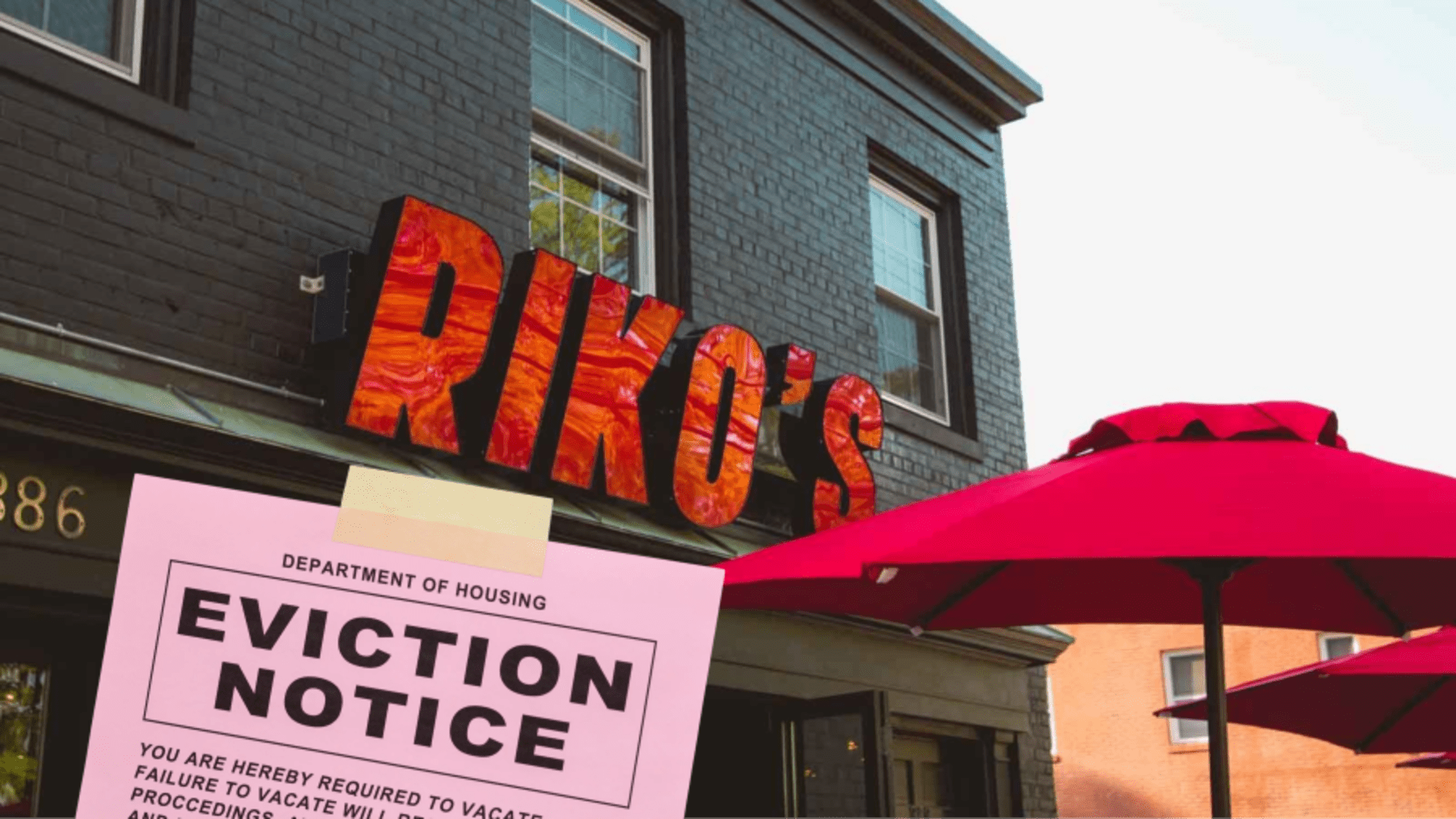
Riko's Pizza: A Stamford favorite faces a possible eviction, but its national expansion plans are still on the menu
As Riko's Pizza, a rapidly expanding pizzeria franchise, fights a potential eviction from one of its two restaurants on its home turf of Stamford, Connecticut, the company is taking legal action to protect its interests. In a Thursday morning filing, Riko's asked the Stamford Housing Session to compel its landlord TPW Partners to provide a detailed list of the specific rent it claims is owed, before Riko's files a formal response to the eviction claim.
A Twist To The Legal Battle
Adding a twist to the legal battle, the landlord for Riko's Pizza, TPW Partners, is led by Prakash Wadhwani of New Canaan. Wadhwani is himself an experienced franchisee, with several successful Mooyah Burgers and Kennedy's All-American Barber Club locations operating in Connecticut. This adds an interesting dynamic to the case, as the landlord and tenant are both experienced players in the franchise industry.
Riko's Pizza, the rapidly expanding pizzeria franchise, is currently in the midst of a legal battle with one of its landlords over a potential eviction. Despite the ongoing legal dispute, the company's co-owners, Rico Imbrogno and Luigi Cardillo Jr., have remained tight-lipped, declining to comment on the lawsuit or their larger franchise expansion plans. In a statement posted on the company's Facebook page, Riko's Pizza stated that it has no plans to close the Springdale restaurant, which it opened in 2016. This statement could be interpreted as a sign of the company's determination to fight the eviction and continue with their growth plans.
According to court records, the lease document of the landlord TPW Partners, shows that Riko's Pizza pays a base rent of around $6,750 per month for its location at 886 Hope St. in Stamford, Connecticut. The lease is set to expire in 2022. However, the initial lease agreement also included an option for Riko's Pizza to extend the lease for an additional five years, under the condition that the company provides at least six months notice of their intent to do so and that they are in good standing with the lease agreement. This clause in the lease agreement could provide Riko's Pizza with some flexibility in the face of potential eviction.
In December, a real estate brokerage firm listed the location of Riko's Pizza at 886 Hope Street, as available for rent at $45 per square foot, excluding utilities. This rate was listed as the third highest lease rate for restaurant spaces listed for rent in Connecticut on the LoopNet commercial real estate website, behind spaces in Greenwich and New Canaan. If Riko's Pizza were to renew the lease at this new rate, it would equate to an annual rent of $9,350 per month, 38% more than the current rent they are paying under the existing lease which expires in 2022. This increase in rent may cause a financial burden for Riko's Pizza, adding to the eviction case and potentially affecting their larger franchise expansion plans.
Riko's Pizza: National Expansion Plans Are Still On The Menu
Last year, Riko's Pizza made a strategic move, relocating one of their restaurants from a side street in West Stamford to a high-traffic location on West Main Street, just steps from the Greenwich line. This move allowed the company to continue delivering to the Stamford area, providing a more convenient location for their customers. This relocation could be seen as a smart business move, allowing Riko's Pizza to capitalize on the busy location and increase their visibility in the area.
Riko's Pizza is expanding its presence in Connecticut, by opening another location in Darien, Connecticut. The new location will be at the former spot of Darien Social and Louie's Italian Restaurant & Bar, located opposite the Metro-North station downtown on the Boston Post Road. This location is particularly interesting as Darien is known for having tight storefront space, which makes it a prime spot to open a business. This choice of location could be a smart move for Riko's Pizza as it puts them in a prime spot for foot traffic and visibility, helping them to attract more customers.
Riko's Pizza is not just expanding in Connecticut, but also in other markets such as Long Island. Long Island has a competitive pizza market with many options for customers to choose from and a reputation for being fickle when it comes to pizza. However, Riko's Pizza is more than holding its own in Long Island, owning the top Yelp rating as of Wednesday for Levittown, New York, despite having been open there only since September 2020. This shows that the company's unique recipe and concept is resonating well with customers. In Stamford, Riko's Pizza locations are ranked lower by Yelp reviewers, but the company's pizzerias are still among Stamford's top six on TripAdvisor, although they are trailing behind a local rival, Colony Pizza.
On its website, Riko's Pizza is actively seeking franchisees in several metropolitan areas across the United States, including Boston, Albany, New York, Philadelphia, and Washington, D.C. They are also looking to expand to other regions such as the Carolinas, Georgia, and Texas. To become a Riko's Pizza franchisee, entrepreneurs must have a certain level of financial resources. They must demonstrate $100,000 in liquid capital and that the founding team includes at least one person with experience in the food industry. This requirement is in line with industry standards and shows that Riko's Pizza takes the success of its franchisees seriously and wants to ensure that they have the necessary resources to run a successful business.
In addition to the financial requirements mentioned earlier, Riko's Pizza also charges a $30,000 franchise fee up front for those looking to become a franchisee. This is the same fee they have required since they began franchising in 2018. The company estimates that startup costs for a Riko's Pizza outlet can range anywhere from $520,000 to $700,000. Master developers who plan to open at least three locations, however, pay only $15,000 for each of the second two restaurants, making the process more affordable. Riko's Pizza also collects an annual 6 percent royalty on sales by its franchisees, which is a standard practice in the franchise industry.










